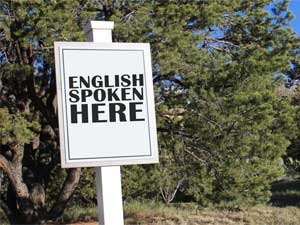Tufts: where more people watch the election than the Super Bowl twitter.com/mattmcd88/stat…
— Matt McDonald (@mattmcd88) November 7, 2012
Two weeks ago, I was standing among a throng of students in Hotung Café at Tufts University—a crowd burning in anticipation to learn the outcome of the presidential election.
I had left my quiet dorm room just ten minutes before with a friend of mine, after finishing my assignments, to witness this historic moment.
The area was packed; I could only cram into the room by jostling and shoving other students aside. The predictions for most of the eastern and southern states had already been announced; Governor Romney had a marginal lead over President Obama. After a while, the emcee announced that CNN’s prediction for Ohio, one of the key swing states, was out. Breaths were held, dead silence prevailed, and all eyes were fixed on the two TV screens.
***
In my mind I was transported back to the Afghan presidential elections in 2009.
The number of candidates was 22 times the number running in the American elections – 44 candidates – yet the thrill of the election was barely noticeable. In fact, I don’t even recall following the news about it. No matter how many candidates there were to choose from, there was little faith that any of them could or would bring much change.




 I shall definitely “graduate” in May, and not “pass out”, as I would have in India. Although, the exhausting way we work here at St. John’s College, it may end up being a little of both.
I shall definitely “graduate” in May, and not “pass out”, as I would have in India. Although, the exhausting way we work here at St. John’s College, it may end up being a little of both. But something I found interesting is the fact that voting day here in Kansas is just like any other week day, and if someone doesn’t vote, there is no penalty for that.
But something I found interesting is the fact that voting day here in Kansas is just like any other week day, and if someone doesn’t vote, there is no penalty for that. On my plate was a sizable cheese burger, sitting on top of a bunch of curly fries, accompanied by plenty of ketchup and pickle slices to round up the over-packed plate.
On my plate was a sizable cheese burger, sitting on top of a bunch of curly fries, accompanied by plenty of ketchup and pickle slices to round up the over-packed plate. Tara Cheng
Tara Cheng
 Disability, Difference and Left-handedness in China and America
Disability, Difference and Left-handedness in China and America Don't Study in the US: A Look at the Pros and Cons
Don't Study in the US: A Look at the Pros and Cons The Best Advice I Ever Got for Writing in English: ‘Treat the Professors Like Idiots’
The Best Advice I Ever Got for Writing in English: ‘Treat the Professors Like Idiots’ What Americans Think When They Hear Common English Mistakes
What Americans Think When They Hear Common English Mistakes Take a Tour Around my Typical American Dorm Room
Take a Tour Around my Typical American Dorm Room What Does it Mean to "Be American" as a Chinese Student?
What Does it Mean to "Be American" as a Chinese Student? How to Speak English Fluently?
How to Speak English Fluently? How I Made Myself a Good Candidate for US Admissions (and Other Advice from a Successful Applicant)
How I Made Myself a Good Candidate for US Admissions (and Other Advice from a Successful Applicant) Staying Safe: A Story No One Should Have to Tell
Staying Safe: A Story No One Should Have to Tell First Steps: What to Do if You Want to Study in the US
First Steps: What to Do if You Want to Study in the US Student Visa Tips From Visa Officers
Student Visa Tips From Visa Officers Why a Weak SAT Score Didn’t Kill My College Dreams
Why a Weak SAT Score Didn’t Kill My College Dreams